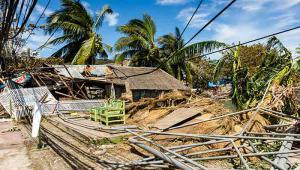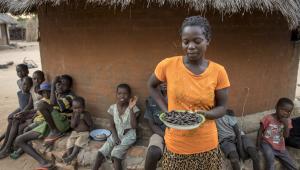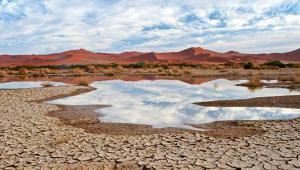The El Niño weather pattern, where the cyclical warming of the Pacific Ocean generates erratic weather worldwide, has hit the region particularly hard.
While elsewhere El Niño might create heavy rains and floods, in southern Africa relentless drought has lead to widespread food insecurity. It has caused a surge in food prices, crippled agriculture and economies in the region, and forced nations like Zimbabwe and Malawi to declare a state of emergency.
The Southern African Development Community, a regional organisation comprising 15 countries, launched the appeal earlier this week.
Chairman Seretse Khama Ian Khama, also president of Botswana, explained that 40 million people in the region are food insecure – around 14% of the SADC’s total population.
Stergomena Lawrence Tax, SADC executive secretary, also stressed that the severe drought had also “disrupted the lives and livelihoods” of millions.
While much of the region was able to cope with the fallout of drought when it began to set in during 2014, by 2015/16 its length and severity, generated by one of the strongest El Niños on record, had overwhelmed most affected nations.
The SADC said the appeal will facilitate member state’s ongoing efforts and covers all relevant sectors of the region’s economy “to ensure a holistic approach”. The funds will be aimed at addressing immediate humanitarian needs as well as longer-term development and resilience-building requirements.
In response to the appeal, the US, UK and the European Union have pledged $300m, £72m ($95m) and €60m ($66m) respectively.
El Niño has wreaked havoc elsewhere in Africa too. In Ethiopia alone, at the start of 2015, 2.9 million people were in need. By the end of the year, that number had grown rapidly to 10 million, in addition to eight million people supported by government programmes.
Drought also spread across Asia, the Pacific and Latin America. In some nations, heavy rains and floods created breeding grounds for water- and vector-borne diseases and left many more in urgent need of food, clean water, sanitation and health services.
Weather events such as tropical cyclones also battered countries with increased ferocity.
The United Nations estimated in April this year that around 60 million people around the world had been affected. At the time, a minimum of $3.6bn was needed. The funding gap stood at $2bn.













